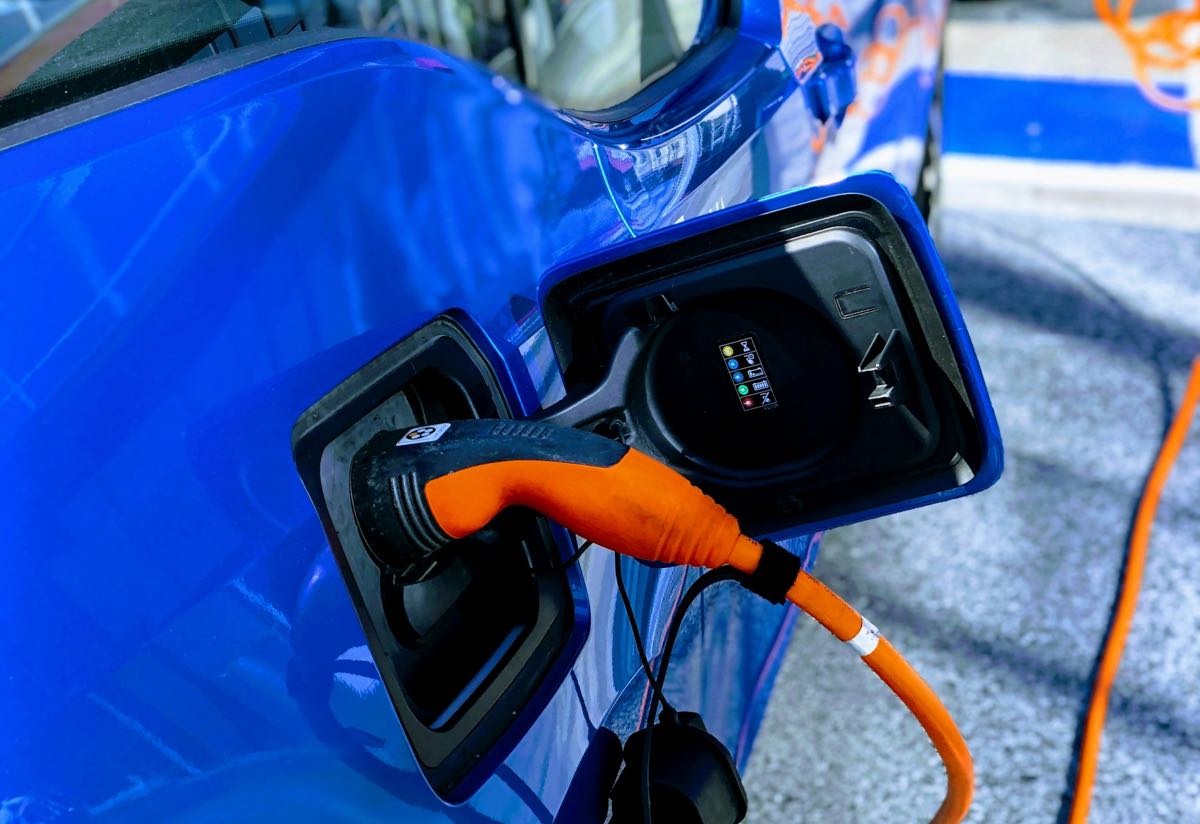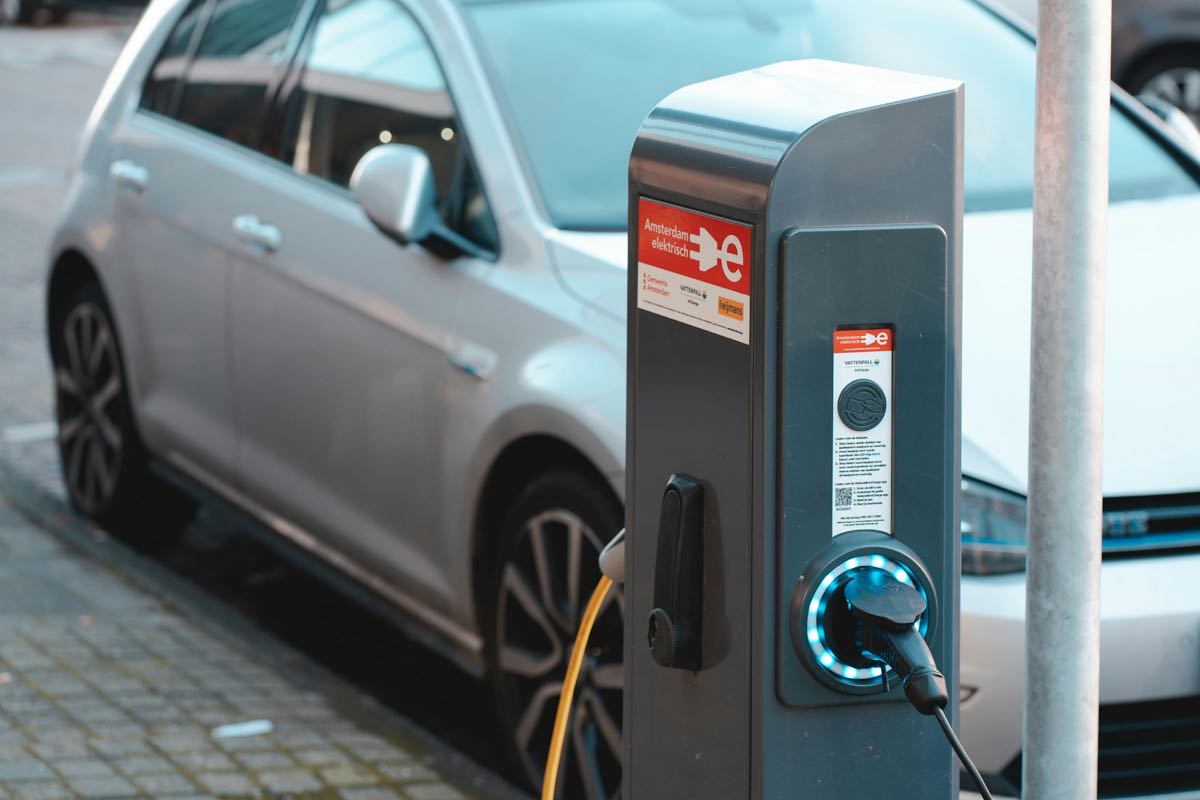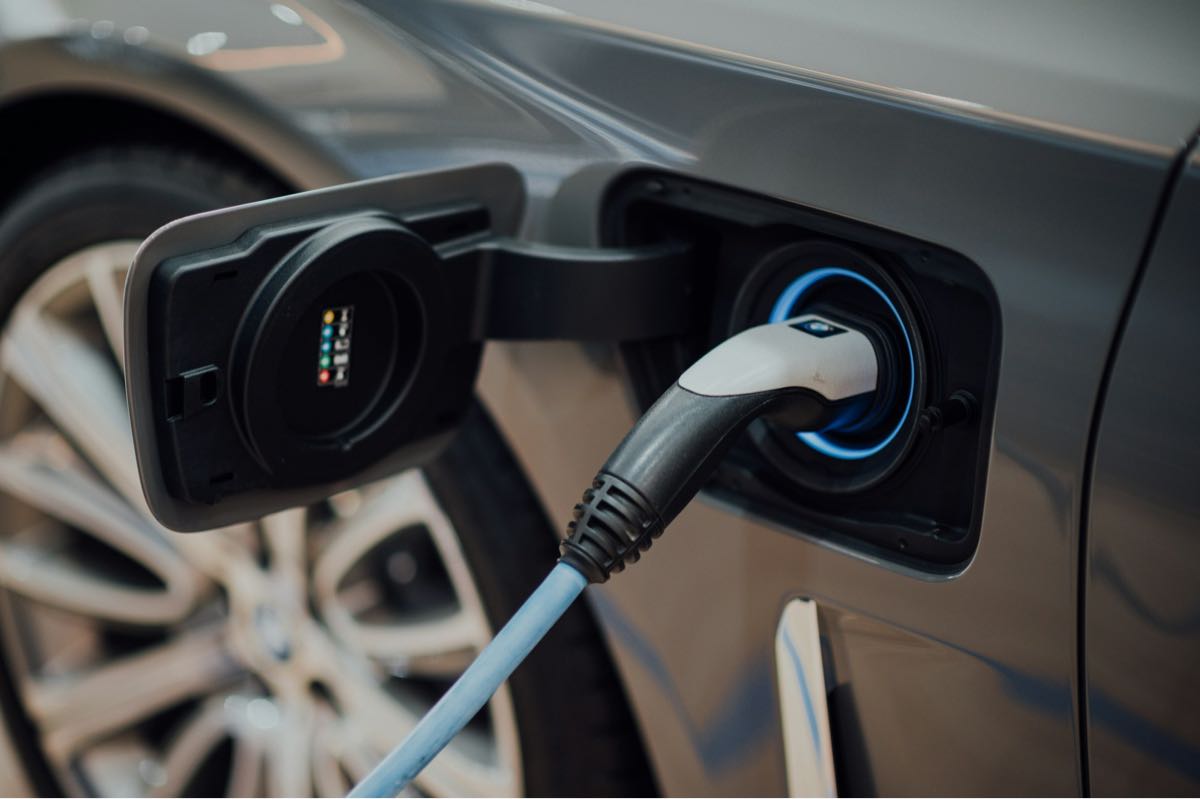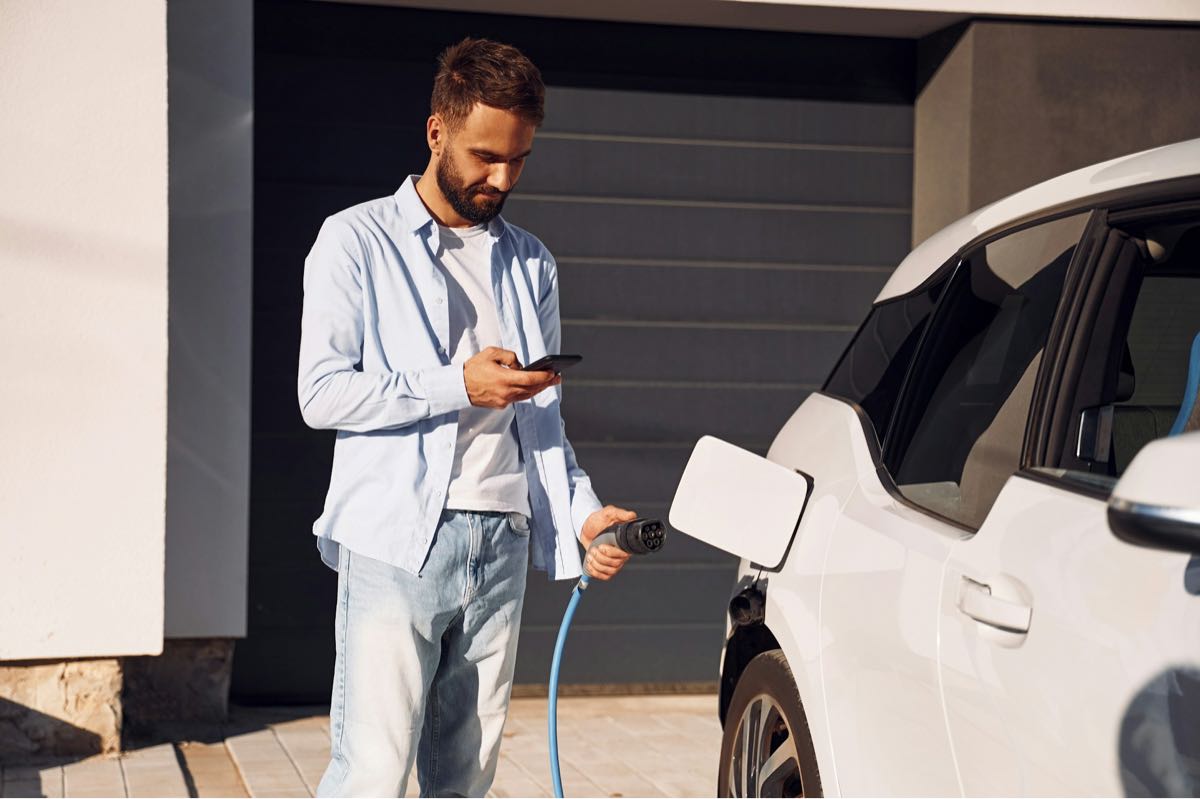Thanks in large part to the growing popularity of electric and hybrid vehicles, the automotive industry is about to undergo a profound shift. This change is a significant step in the direction of environmentally friendly transportation options, not just a fad. Thanks to consumer awareness and technology improvements, the U.S. market has witnessed a considerable surge in the adoption of these eco-friendly alternatives. Key predictions from industry experts such as EY Global point to a critical turning point as we look deeper into the dynamics of this market: sales of electric cars are predicted to overtake those of conventional combustion engine vehicles by 2033.
The automotive environment is undergoing a dramatic and far-reaching transformation due to this electrification revolution. This change is being accelerated by government incentives, advancements in battery technology, and an expanding infrastructure of charging stations. In addition, the market is becoming more diversified and competitive as well-established automakers and creative startups enter the electric car space. Examining this industry’s development reveals that the shift to electric and hybrid cars is not merely a passing trend; rather, it represents the way American driving will develop going forward. The segments that follow will go into more detail on the U.S. electric vehicle market’s growth trajectory, highlighting the turning points in this ground-breaking journey.

The automotive landscape is being reshaped by electric and hybrid vehicles due to their new technology, efficiency, and advantages to the environment. These cars not only mark a significant advancement in environmentally friendly transportation, but they also provide useful benefits for everyday use. This section explores the factors—efficiency, affordability, and environmental impact—that are leading an increasing number of drivers to select electric and hybrid cars.
Why Choose Electric? When compared to conventional internal combustion engine cars, electric and hybrid vehicles provide a tempting option since they have lower operating costs, need less maintenance, and perform exceptionally well without polluting the environment. They make use of cutting-edge technology that improve driving while encouraging more environmentally friendly modes of transportation. Because of this, they are now regarded as a leading option for customers who want to enjoy the newest automobile technology without increasing their carbon footprint.
Fuel Efficiency and Cost Savings The exceptional fuel efficiency of electric or hybrid cars is one of the strongest justifications for selecting them. Compared to their traditional equivalents, these cars consume less gasoline each mile, which adds up to substantial fuel expense savings over the course of ownership. Further financial advantages result from the fact that electric cars (EVs) may be charged at home, frequently for a lot less money than fuelling a gasoline or diesel engine.
Environmental and Performance Benefits The quantity of greenhouse gases and other pollutants discharged into the atmosphere is greatly decreased by electric and hybrid automobiles. In order to battle climate change and improve air quality, this emission reduction is essential. Furthermore, as compared to conventional engines, electric motors accelerate more smoothly and powerfully, improving the driving experience by delivering higher torque and faster reaction times.

It’s critical to comprehend the technical subtleties of hybrid and electric cars as we move toward greener modes of transportation. This section explores the mechanics and benefits that distinguish each type of vehicle, focusing on the main distinctions between these cutting-edge vehicles and conventional gasoline-powered cars. Understanding the technology within these cars allows people to make educated decisions about how they want to travel and how it will affect the environment.
The Basic Differences The ways in which hybrid, electric, and conventional cars are powered and function are fundamentally different. Hybrid cars combine a conventional engine with one or more electric motors, utilizing a battery that recharges while driving, in contrast to traditional vehicles, which only have internal combustion engines that burn gasoline to create power. Conversely, electric vehicles (EVs) run only on electricity that is stored in batteries, which are refilled by external sources and regenerative braking mechanisms. Understanding the advantages that hybrids and electric vehicles (EVs) have over conventional automobiles in terms of the environment and operation depends on this differentiation.
Technology Behind the Power Electric motors and lithium-ion batteries are the two main components of an electric vehicle’s powertrain. The engine is powered by these batteries, which prevent the need for fuel to spin the wheels. Over time, lithium-ion battery efficiency has increased significantly, resulting in longer battery life and faster charging periods. For the same price as combustion engines, electric motors are preferred because of their minimal maintenance requirements, high efficiency, and lack of moving parts.
Hybrid Vehicles: Best of Both Worlds The advantages of both electric and gasoline engines may be combined in hybrid cars. In a typical hybrid vehicle, such as the Toyota Prius, the electric motor powers the vehicle at lower speeds when electric power is more economical. At greater speeds and longer distances, the gasoline engine takes over. Because of this combination, hybrid cars are able to attain far higher fuel efficiency than conventional cars. Moreover, regenerative braking, which recovers kinetic energy from brake application and transforms it back into electric energy, allows hybrids to recharge their batteries and increase their efficiency even more.

It’s important to know how hybrid and electric cars behave in different driving situations while evaluating them. This section examines important variables that affect how these eco-friendly cars drive, especially in urban vs long-distance situations and the function of regenerative braking systems. Comprehending these variables may assist prospective purchasers in making well-informed choices customized to their driving preferences.
City vs. Long-Distance Driving The economy and reduced environmental effect of hybrid and electric cars are frequently praised, especially in urban areas where stop-and-go traffic enables these cars to fully utilize their electric prowess. However, during lengthy car journeys, their performance may vary. Depending on their range, electric cars may need to stop frequently to recharge, which can prolong the distance they need to drive. However, hybrid cars may also run on gasoline, which makes them more adaptable for long distance travel but probably less efficient than in city driving.
Regenerative Braking Explained One important component of electric and hybrid cars that aids in energy conservation is regenerative braking. When the car brakes, this system harnesses the kinetic energy of the vehicle and transforms it into electrical energy that is stored in the battery for later use. Regenerative braking is less useful on lengthy highway segments where there is less stopping, resulting in less energy recovery and a longer dependence on the primary power source. However, it is extremely effective in urban driving when frequent braking occurs.

There are several logistical factors to take into account while transporting a hybrid car between states or even the entire nation. Whether it’s for moving, an extended stay in a different city, or auto shows, the procedure calls for meticulous preparation and the appropriate transportation options. The following part explores the advantages of using professional car transport services as well as the several ways that a hybrid vehicle may be transported effectively and securely.
Why Ship Your Hybrid Vehicle? There are several advantages to using a professional auto shipping company to ship your hybrid car. It guarantees that your car reaches its destination safely and removes the wear and tear that comes with long-distance travel. This is especially helpful if you’re moving to a new state or require your car in a different place for a long time. Having the transportation handled by professionals who understand the requirements of hybrid cars also gives you peace of mind when you choose a professional car shipping service.
Advantages of Professional Auto Transport By hiring a skilled auto shipping company, you can be confident that your hybrid car will receive the proper handling. With the knowledge and resources needed to handle the unique needs of shipping hybrid cars, these companies are well prepared. Experienced and professional car shipping companies uphold the greatest standards of efficiency and safety, from correctly fastening the vehicle to keeping an eye on its condition the entire way.

For your hybrid car to arrive safely and on schedule, choosing the best auto shipping company is essential. A thorough guide on selecting a transport provider is provided in this part to assist you in making an informed choice. A transparent delivery procedure, customer reviews, and accreditation are important considerations.
Evaluating Auto Transport Companies Make sure the vehicle shipping business you choose is reputable and offers high-quality services. Verify whether the business has received an accreditation from the Federal Motor Carrier Safety Administration (FMCSA), as this attests to its adherence to industry standards and safety laws. Furthermore, perusing client testimonials on reputable websites may offer valuable perspectives about the dependability of the business and the caliber of its offerings.
Steps to Ship Your Hybrid Vehicle There are a few crucial stages involved in shipping your hybrid car to make sure everything goes well. First, you should get a free auto shipping quotation from the company in question. This can usually be done on their website and will provide you with an estimate of the shipping costs depending on the details of your vehicle and the distance of the trip. You may plan your shipping after obtaining your price. A customer service representative will help you with the paperwork, pickup, and delivery arrangements, making sure your car is delivered to its destination securely and effectively.

Selecting the appropriate shipping technique is essential when it comes to the shipment of hybrid and electric vehicles. This section explores the many shipping choices that are available and lists the best practices that are specific to these kinds of vehicles. Knowing your alternatives can assist to guarantee that your car is moved effectively, safely, and affordably.
Comparison of Shipping Options Vehicles may be transported using a variety of shipping techniques, such as enclosed and open transit. Open transport usually has lower costs and is more widespread, which simplifies the search for viable carriers. On the other side, enclosed transportation provides additional defense against inclement weather and falling objects on the road. This is especially advantageous for expensive electric and hybrid cars that could include sensitive electrical components.
Recommended Methods for Hybrid Vehicles Certain transportation techniques can provide greater protection and value for hybrid automobiles, which blend parts of electric and conventional autos. In general, open motor transport is advised due to its affordability. Enclosed shipping offers an additional layer of protection against potential damage during long-haul journeys, especially for high-end hybrid vehicles or those with delicate components. Furthermore, door-to-door shipment can improve convenience by removing the need for the car owner to make trips to and from drop-off and pickup sites, simplifying the procedure as much as possible.

It’s evident that hybrid and electric cars represent a substantial transition toward more environmentally friendly and efficient driving, not merely a temporary trend. This progression promises to change not just the way we travel but also the way we consider how much gasoline we use and the influence we have on the environment. Leading the way in this transition are electric and hybrid cars, which provide a more economical and environmentally friendly driving experience.
Selecting the appropriate partner is essential when shipping these cutting-edge automobiles. With a constant five-star rating from clients and an A+ rating from the Better Business Bureau, Ship A Car, Inc. has established itself as a pioneer in the business. Whether you’re buying a new car, moving, or delivering a vehicle to a loved one, their experience with hybrid and electric cars makes certain that your automobile is moved securely, effectively, and without any fuss.
Go no farther than Ship A Car, Inc. if you need to ship an electric or hybrid car. They have an unrivaled dedication to providing excellent vehicle transport services and satisfying customers. To talk with an experienced transport expert, give Ship A Car a call at (866) 821-4555. You can also complete the online form above for a shipping quotation. With the knowledge that your car is in the best hands, embrace the future of mobility with assurance.

Q: What are the main benefits of driving a hybrid or electric car?
A: Compared to conventional automobiles, hybrid and electric vehicles have several benefits, primary among them being reduced pollutants, increased fuel economy, and total cost savings. These vehicles consume less fuel every mile, saving you money and lessening your carbon imprint. Furthermore, because they have fewer moving parts than cars with internal combustion engines, electric vehicles may eventually result in cheaper maintenance costs.
Q: How do I choose the best auto transport service for my hybrid vehicle?
A: Choose a hybrid vehicle shipping company based on their track record, client satisfaction, and cost-effectiveness. Verify the company’s insurance and license status, look up its Better Business Bureau rating, and read testimonials from prior clients. It is advisable to evaluate estimates and offerings from many businesses in order to identify the most advantageous offer that maintains the caliber of the services.
Q: What is the best method to ship an electric car?
A: There are several ways to ship an electric car, including door-to-door, terminal-to-terminal, enclosed, and open transport. Enclosed transport offers the most protection, making it ideal for high-value electric cars, whereas open transport is more cost-effective and still safe. Convenience is afforded by door-to-door service, as the car is picked up and delivered as near to your designated places as feasible.
Q: Are there any special considerations for transporting a hybrid vehicle across state lines?
A: It’s crucial to take into account the battery condition and the particular needs of your transport provider when shipping a hybrid car across state lines. Make sure the transport company knows your car is a hybrid and talk to them about whether or not the battery has to be completely charged before being transported. Also, confirm that the business carries out vehicle transport in accordance with all state legislation.
Q: Can electric vehicles be shipped internationally, and what are the considerations?
A: It is possible to transport electric cars abroad, but there are a few things to bear in mind. You’ll have to abide by the particular import and export legislation of the participating nations as well as international shipping restrictions. Selecting a shipping company with experience in international transit, familiarity with customs clearance procedures, and the ability to offer advice on taxes, tariffs, and required papers is essential.
For the sake of providing a seamless and secure shipping experience, these frequently asked questions are intended to assist you in understanding the unique challenges of shipping hybrid and electric vehicles. If you have any more questions or want a quote, please call Ship A Car, Inc. at (866) 821-4555 or fill out the online transport estimate form that is conveniently located above.




